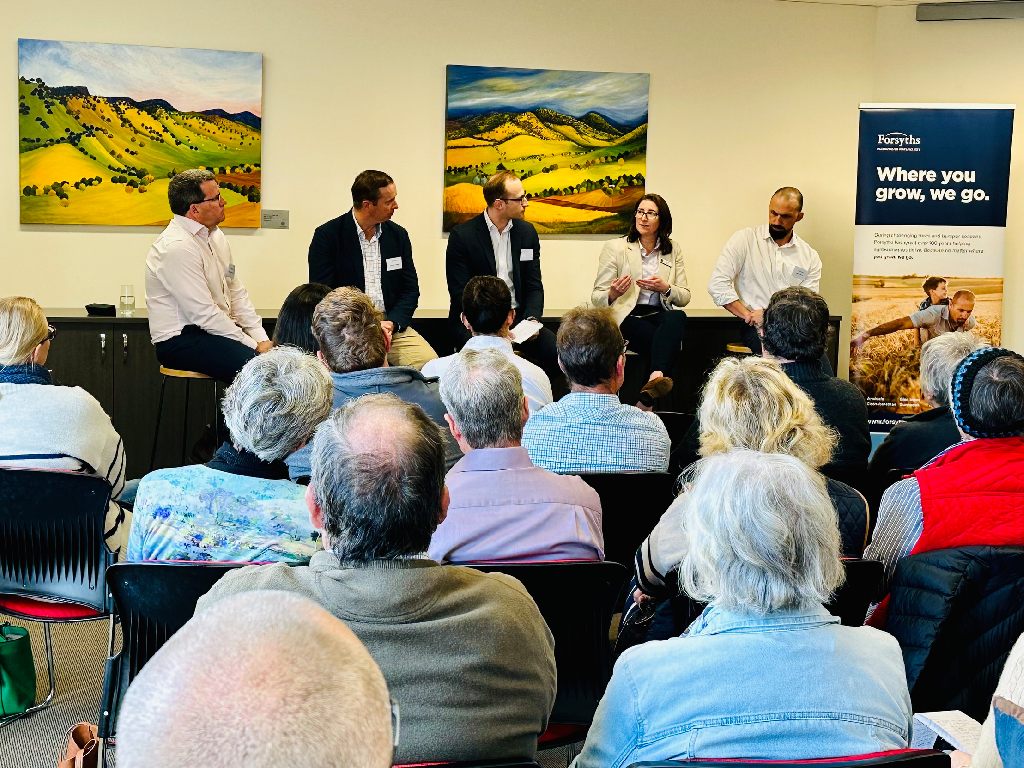How many people does it take to run a carbon farming project?

RPNSW recently attended the Forsyths accountants Carbon Farming Event at Tamworth. The event showcased the different areas of expertise that should be consulted if you are considering a carbon project on your property.
In the “environmental farming” sphere, projects generally fall into two broad categories – those that are based around carbon and those that are based around biodiversity (plants and animals). Within these broad categories there are multiple different project types, but that is a story for another time.
At the Carbon Farming Event, Hamish Webb from Precision Pastures spoke about his personal experience with a carbon soil sequestration project on his own farm plus the services offered by Precision Pastures.
Hamish emphasised that carbon farming tends to work best when the project is in alignment with existing production objectives.
Precision Pastures offers a baseline “Carbon Starter” report including a cost-benefit analysis which can help determine if a carbon farming project is feasible.
There are a multitude of other companies providing services relating to setting up environmental farming projects, so if you are interested get Googling…..
But this is only the start.
You will need to consult with more than a carbon project service provider to make a successful project.
Next stop will be your legal and accountancy professionals to consider taxation, risk, succession planning etc. Senior Associate at Cowell Clarke Commercial Lawyers, Daniel Marateo, touched on some of the legal aspects of committing to a carbon project. He highlighted that these projects are longterm (often 15 to 20 years), so you need to think about future as well as the present.
And what about finance? While many banks offer attractive “green loans”, they have strict criteria and will analyse the detail of your project design and entity structure. Josie Zillm, Head of Agribusiness Strategy, indicated that NAB is keen to support clients who support the climate; but don’t expect that assistance if you haven’t done your homework.
Throughout the lifetime of the carbon project, it must be independently audited at different milestones to ensure it is on track. Jacob Sauer, Forsyths Audit Principal, advised that you should consult with the auditor early on. This will ensure you have the appropriate paper trail of evidence to support your activities and prevent angst at the audit check points.
We may be biased, but we feel that the seminar would have benefited from the viewpoint of an experienced rural property sales agent. There is no doubt that running a carbon project on your farm will impact that saleability of the land in most cases. The project could make it more; or less (!) attractive to potential purchasers in the event of a future sale. Considering the longterm commitment of most projects, the saleability aspect warrants serious attention during the setup phase.
There appears to be much potential in the environmental farming sector for those who are willing to work through the detail and make strategic decisions. It’s not going to be for everyone, but it certainly has prospects as a rewarding adjunct to traditional agriculture.
by Michael Guest in Latest News
Share this post
Posts this year
Archived Posts
- Posts in 2024
- Posts in 2023
- Posts in 2022
- Posts in 2021
- Posts in 2020
- Posts in 2019
- Posts in 2018
- Posts in 2017
- Posts in 2016
